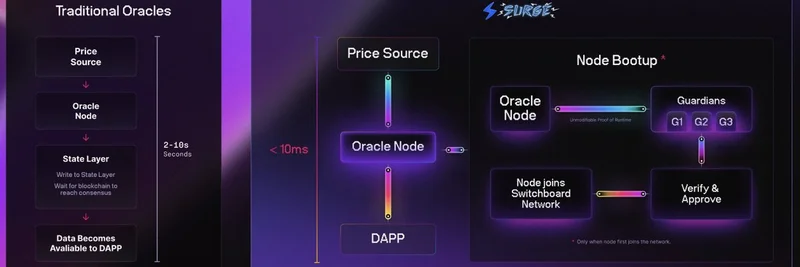Blockchains are incredible at tracking what happens on-chain, but they're completely in the dark when it comes to the real world. Want to know the current price of ETH, the score of a football game, or even if it rained yesterday? That's where oracles come in—they're the vital bridges that feed external data into smart contracts. But let's be real: most oracles today are slow, pricey, and way too centralized, turning what should be trustless DeFi into something that feels like begging for permission.
This "oracle problem" has led to massive losses—billions, in fact—and it's holding back the full potential of decentralized finance. Enter Switchboard, a project that's flipping the script with a permissionless, universal oracle network. According to a recent thread by crypto trend spotter @PixOnChain, Switchboard isn't just another middleman; it's delivering price feeds in under 10 milliseconds, making it 300x faster and 100x cheaper than traditional setups.
To break it down simply: Traditional oracles rely on a clunky process where price data goes through centralized nodes, waits 2-10 seconds for consensus on the state layer, and only then becomes available to dApps. That's seconds of delay that can cost traders dearly in volatile markets. Switchboard's "Surge" system changes everything with a node bootstrap mechanism involving guardians—think GU1, GU2, etc.—that verify and approve data almost instantly via a switchboard network. New nodes join seamlessly, and the whole thing runs on an unmodifiable proof of runtime for reliability.
This speed and cost efficiency open up wild possibilities: real-time risk management tools, high-frequency trading strategies on-chain, lag-free prediction markets, and even responsive blockchain-based games. It's like how cheaper microchips transformed personal computing or affordable bandwidth exploded the internet—cheap oracles could supercharge DeFi in ways we haven't even imagined yet.
The permissionless angle is huge too. Just like PCs, the web, and mobile apps took off when anyone could build on them without gatekeepers, Switchboard removes those oracle bottlenecks. Developers can plug in without asking "daddy" for approval, fostering true innovation.
And the timing couldn't be better: Switchboard is launching its native token, $SWTCH, today, September 9, 2025. Sure, the crypto crowd will debate valuations and price pumps, but the real game-changer is what happens next. With oracles no longer a drag, expect everything from lending protocols to yield farming to evolve rapidly. Users might not even notice the upgrade—your trades will just execute at the right price, and liquidations won't glitch on delays.
As someone who's covered the crypto space from the trenches at CoinDesk and now at Meme Insider, where we geek out on meme tokens and blockchain tech, this feels like a pivotal moment. Oracles have been the unsung (and often problematic) heroes of Web3. If Switchboard delivers, it could make DeFi as seamless as Web2 apps, while keeping the decentralized spirit alive. Keep an eye on $SWTCH—it's not just a token; it's the key to unlocking faster, fairer blockchain interactions.



